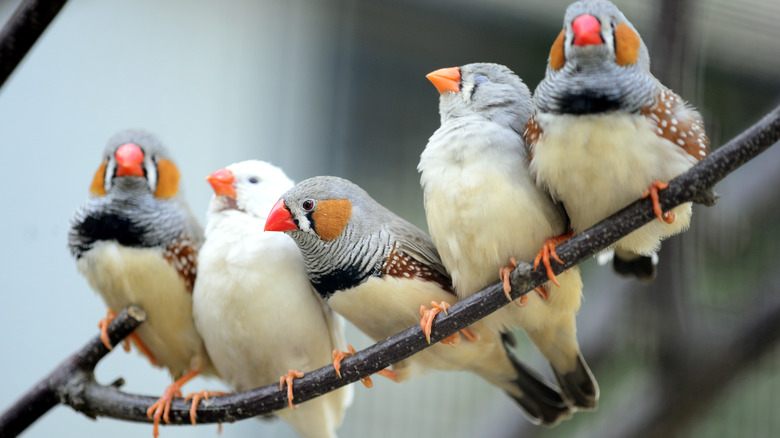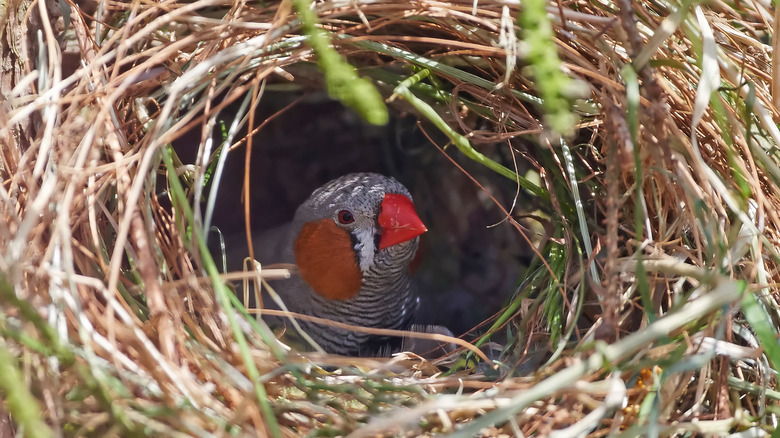Why These Birds Sing To Cool Down Their Eggs
The transformative power of music on the human mind is nothing new. Music has the power not just to uplift or sadden, but release "mood-enhancing" chemicals like dopamine (per the BBC), social bonding chemicals like oxytocin (per Frontiers in Human Neuroscience), aid in processing anger (also per Frontiers in Human Neuroscience, posted at the U.S. National Library of Medicine), and even move people so deeply that it pulls them back from the brink of suicide, as one woman discussed on Vice. All of this happens simply by listening to sound. Somehow, combinations of frequencies, composed according to melodic intervals, tempo, and so on, affect the central nervous system and order glands to release chemicals. Voilà: You've discovered you like Adele.
But humans aren't the only animals to do this. Birds like parrots imitate human songs and speech as readily as a person can whistle a finch tune. Birds like the zebra finch pass on their songs through social learning, the way a chimp learns to use a rock to open nuts. One study on Frontiers in Psychology reported different zebra finch phonology (sound forms) and syntax (grammar) in different populations across Australia.
And in a page pulled straight from "Baby Mozart for Birds," zebra finch mothers also sing to their eggs. Specifically, as New Scientist says, their songs can reduce an egg's temperature by controlling the release of energy in cells (adenosine triphosphate, or ATP). If things get too hot in Australia? They just sing to their eggs to cool their babies down.
Less ATP, more heat, and vice-versa
The cut-off is 26 degrees Celsius (about 79 degrees Fahrenheit), as New Scientist says. Above that, zebra finch moms start singing to their eggs to cool things down. These "heat calls" alter how mitochondria, energy-producing organelles in animal cells, operate. Mitochondria power individual cells using sugar, fat, and the like to create ATP, and they can also displace this energy to maintain overall body heat. As Phys says, it's still unknown how mitochondria do this. It's also unknown exactly how a mother zebra finch's heat call affects the biochemistry of its unborn chicks, no matter that it does.
In a highly controlled study, Mylene Mariette at Deakin University in Geelong, Australia took the newly laid eggs of 111 zebra finches and transferred them to one of two incubators at 37 degrees Celsius for 10 days (to make sure the babies survived). During this time she played heat calls in one, and nothing in the other. Then, she transferred the eggs back to foster parents (to avoid any biases between eggs and their biological parents) in nests ranging in temperatures from 22 to 34 degrees Celsius (about 72-93 degrees Fahrenheit). Lo and behold, the eggs exposed to heat calls produced more ATP and less heat.
The birds exposed to heat calls will grow up to be smaller and produce less body heat because of a larger surface area to volume ratio. This will help them survive not only Australian summers, but global climate change.

